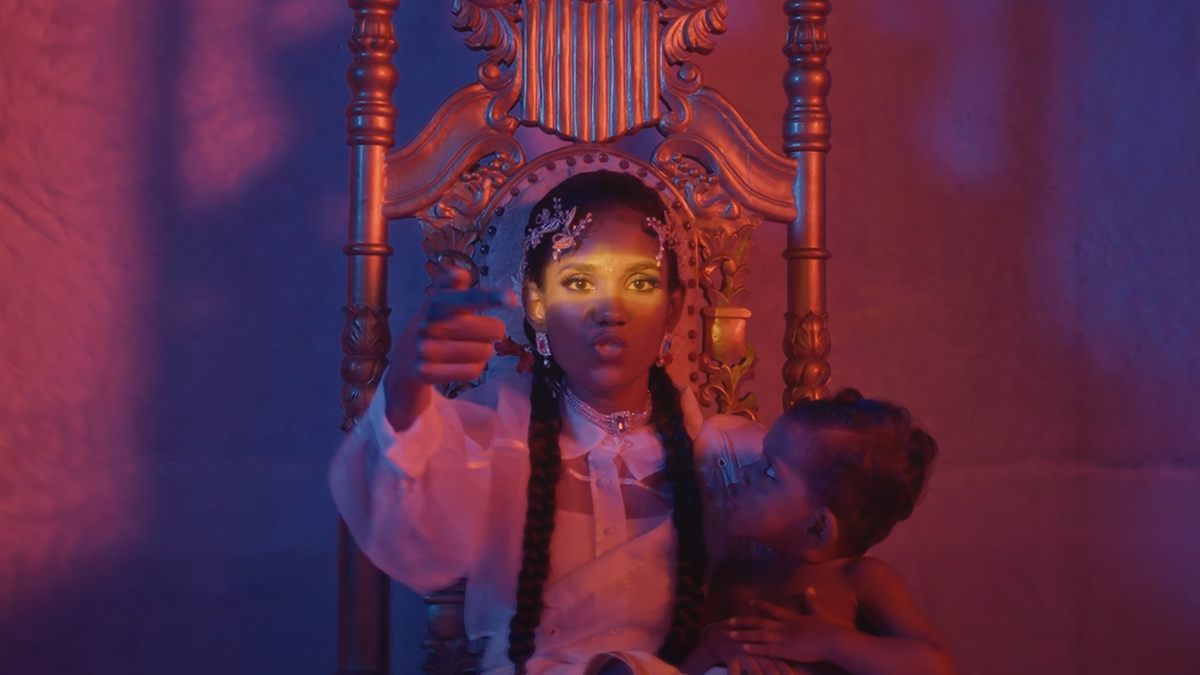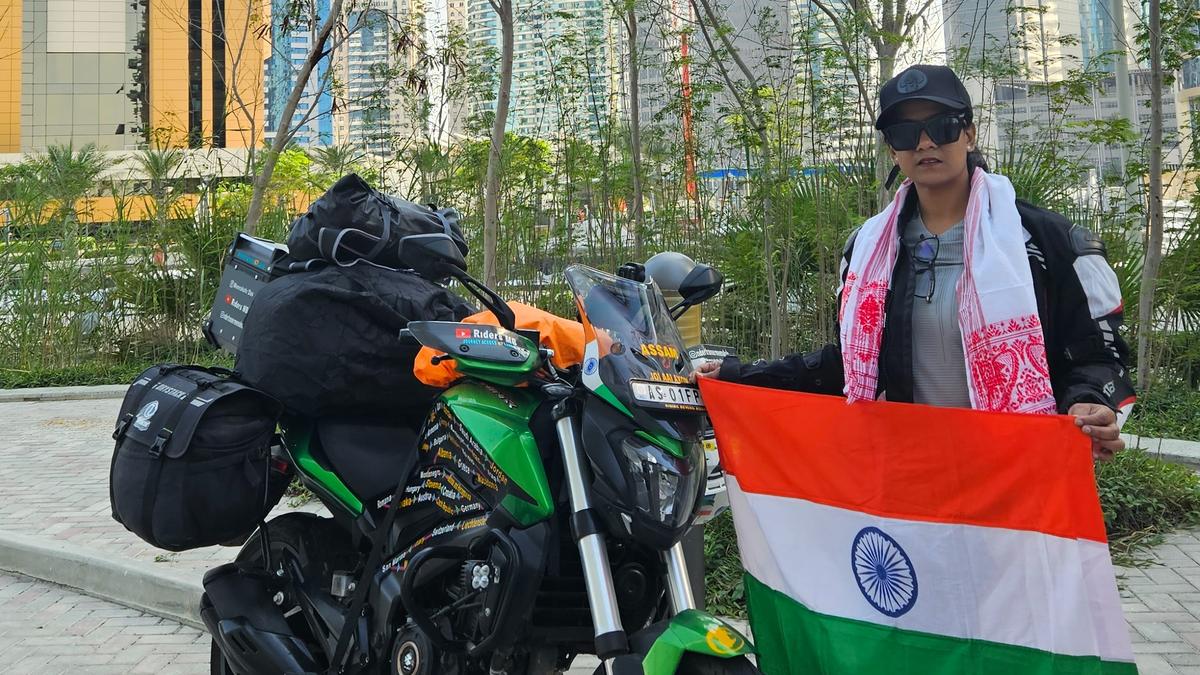
Tokyo Paralympics gold winner Pramod Bhagat speaks to Lounge about how he won the Para Badminton World Championships for a record fifth time
Hundred minutes, 106 points. That’s how long Pramod Bhagat needed to beat World No. 1 Daniel Bethell of the UK, in the final of the SL3 category, at the 2024 Para Badminton World Championships in Pattaya on Sunday, 25 February. It was a historic world title for Bhagat, who equalled Chinese badminton great Lin Dan’s five world titles. It was also a clarion call from Bhagat in the year of the Paralympics.
“Lin Dan is one of my idols and matching him in any way is a big achievement,” Bhagat tells Lounge a few days after the triumph. In a close, hard-fought final, Bhagat defeated Bethell 14-21, 21-15, 21-14 to keep the edge in their intriguing rivalry. Bhagat had defeated Bethell in the Tokyo Paralympics final as well, but the Indian had since lost nine of their 11 matches.
“Worlds is a platform where both of us were keen to do well. This was the last qualification tournament for Paralympics. It was also my way of making a statement ahead of this year’s Paralympics. This world championship match would give a hint at who is ahead. The other tour events don’t matter as much, but losing an event like this can create pressure. I wanted to show my dominance. Winning the fifth World Championship was an added achievement.”
Bhagat led the Indian march at this year’s Para Badminton World Championships. India finished the event with 18 medals, including three gold. Apart from Bhagat, Suhas Yathiraj and Tokyo gold medallist Krishna Nagar also won their respective events. While Nagar got the better of Naili Lin on China 22-20, 22-20 in the SH6 category, Yathiraj won his first World Championships gold by defeating Indonesia’s Fredy Setiawan 21-18, 21-8 in the SL4 category.
It was another successful outing for an Indian para badminton team that has been on a medal rush, ever since it was announced that the sport would be included in the Olympic roster at the Tokyo Games. Bhagat winning a fifth world championship title is also another milestone in India’s para sports revolution, that has been gaining momentum in the past decade or so.
The 35-year-old Bhagat, however, is of a much older, and bleaker vintage. When he won his first world championship title in 2009, Bhagat remembers being met with a shrug of indifference. Him scaling a world event didn’t even register a flicker of interest in the country.
“Garam khoon tha. I was very excited to be a world champion,” says Bhagat, who was 21 at the time. “But when I came home no one seemed to care about it. There was no print media, electronic media, government support. I felt very bad at that point. It was like all the effort that we had put in didn’t seem to matter.”
He was a para badminton player in a country that, at the time, couldn’t care less for any sport that wasn’t cricket, and had little awareness about how to treat or care for people with disability. Bhagat wasn’t the only para athlete to feel invisible. Devendra Jhajharia, India’s foremost Paralympian, regularly recalls the time when he returned from the 2004 Athens Paralympics with a javelin gold with no one apart from his father to greet him at the airport. There were no coaches or dedicated training centres for para athletes at the time. Disillusioned by the experience, Bhagat, who developed lower limb impairment after he contracted polio at the age of five, quit the sport.
“There were lot of difficulties at the time,” he says. “There was no reward for para athletes. Plus, I belonged to a middle-class family and wasn’t able to afford the game either. Apart from events like Asian Games and World Championships, we had to pay out of our pockets to play tour event and make sure we earn ranking points. We used to play the basic minimum tournaments because of the lack of funds. Even for the nationals, or any domestic tournaments, we had to look for sponsorship. And no one really wanted to be associated with us. I had left the sport for a year.”
His first coach, Shiv Prasad Das, was the one who talked him out of the self-imposed hiatus. He knew Bhagat—who was born in Hajipur, Bihar and raised in Bhubaneshwar, Odisha—had the talent and focus to make it big in the sport. “He called him back, sat me down, made me understand,” he says of Das. “He helped me financially, in every way he could to make sure I stayed on track. He told me, please come back and play, you will definitely do well and get the recognition you deserve, but right now just grind it out.”
Whether it was a prophecy or fervent hope, para sports in India did turn a corner in 2016. Having won a total of three medals in the first four Paralympics in the 21st Century, India claimed four at the 2016 Rio Games. Two of them gold. In 2021 at the Tokyo Games, they exceeded expectations, and their total tally of the previous Games, to win 19 medals. From 43rd on the medal charts, India had scooted to No. 24 in one Olympic cycle. All they needed was support and faith.
“Our mind is our biggest weapon,” says Bhagat. “When people talk about mental strength, being a para athlete we have to build that right from the beginning.” Surmounting problems in everyday India had taught them lessons before the sports field could. They were always swarmed with doubts, from the inside and the out. Why sport? Will they be able to do it? Will they find acceptance? “These small things go a long way in strengthening the mind.”
Given the opportunity, and the platform, they have dazzled on the world stage. Indians have been ranked No. 1, created world records, won multiple medals. At last year’s Asian Games, India finished with a best-ever tally of 111 medals. At the 2024 Paris Games, India has already secured 34 qualification/quota places. While a lot of Indian players, like Bhagat, are a certainty for the Games, the Race to Paris Paralympics Rankings list will be officially published on 31 March.
For Bhagat, who will be chasing his second successive gold in Paris, one of the biggest achievements has been winning a world championship title 15 years after his first. In Pattaya, Bhagat had entered three events—singles, doubles, mixed doubles—while his opponent in the final, the left-handed Bethell, was just focusing on singles. Despite a hectic schedule, and a draining semi-final against fellow Indian Manoj Sarkar, Bhagat triumphed in a marathon match over an opponent seven years his junior. Though the Indian was outfoxed by Bethell in the opening game, he problem-solved his way to victory.
“My experience helped,” he says. “This is my first win against him a while. I had prepared for the tournament for two months in Pune at the NKBA (Nikhil Kanetkar Badminton Academy), with Kanetkar who is an Olympian as well. I had to prepare myself physically and mentally for it. The milestone, of five world championships, was in sight. Like always, I went in thinking, ‘I am the best’, and that helped me keep the doubts away. I think even if the match had lasted longer, I would have survived.”
Deepti Patwardhan is a sportswriter based in Mumbai.
Source | Powered by Yes Mom Hosting



